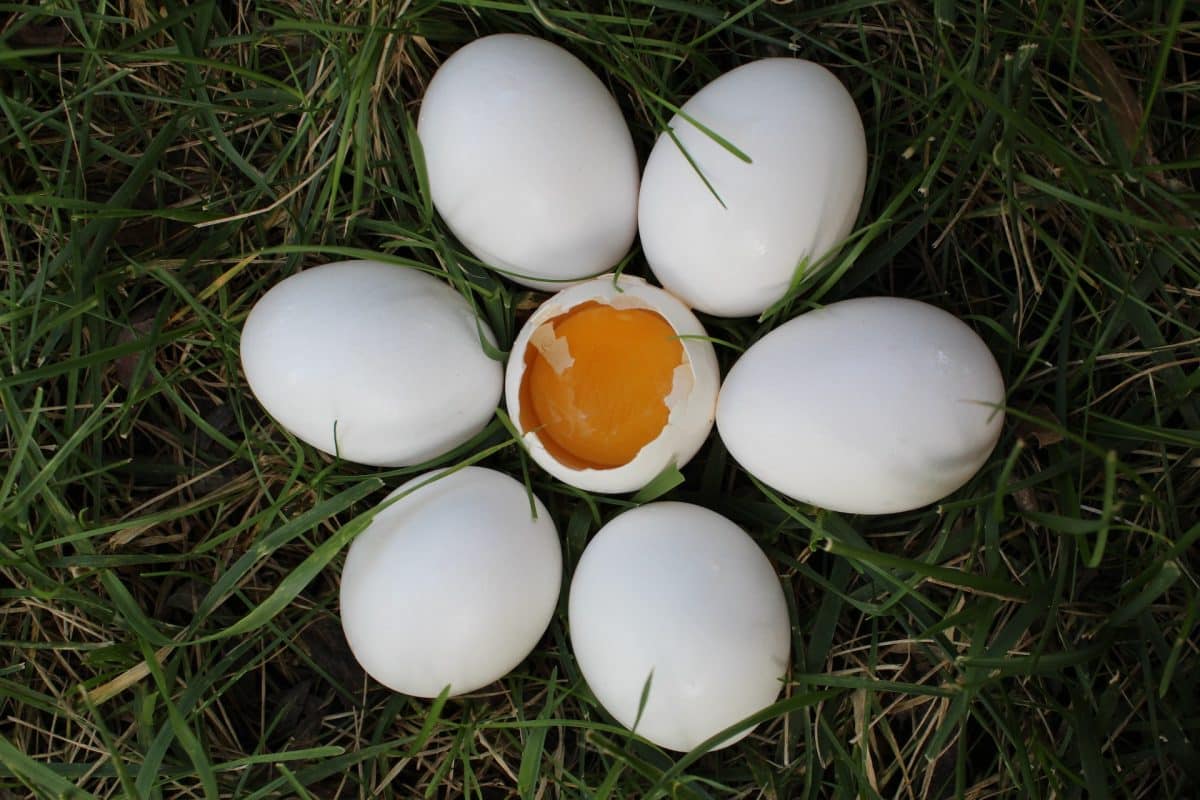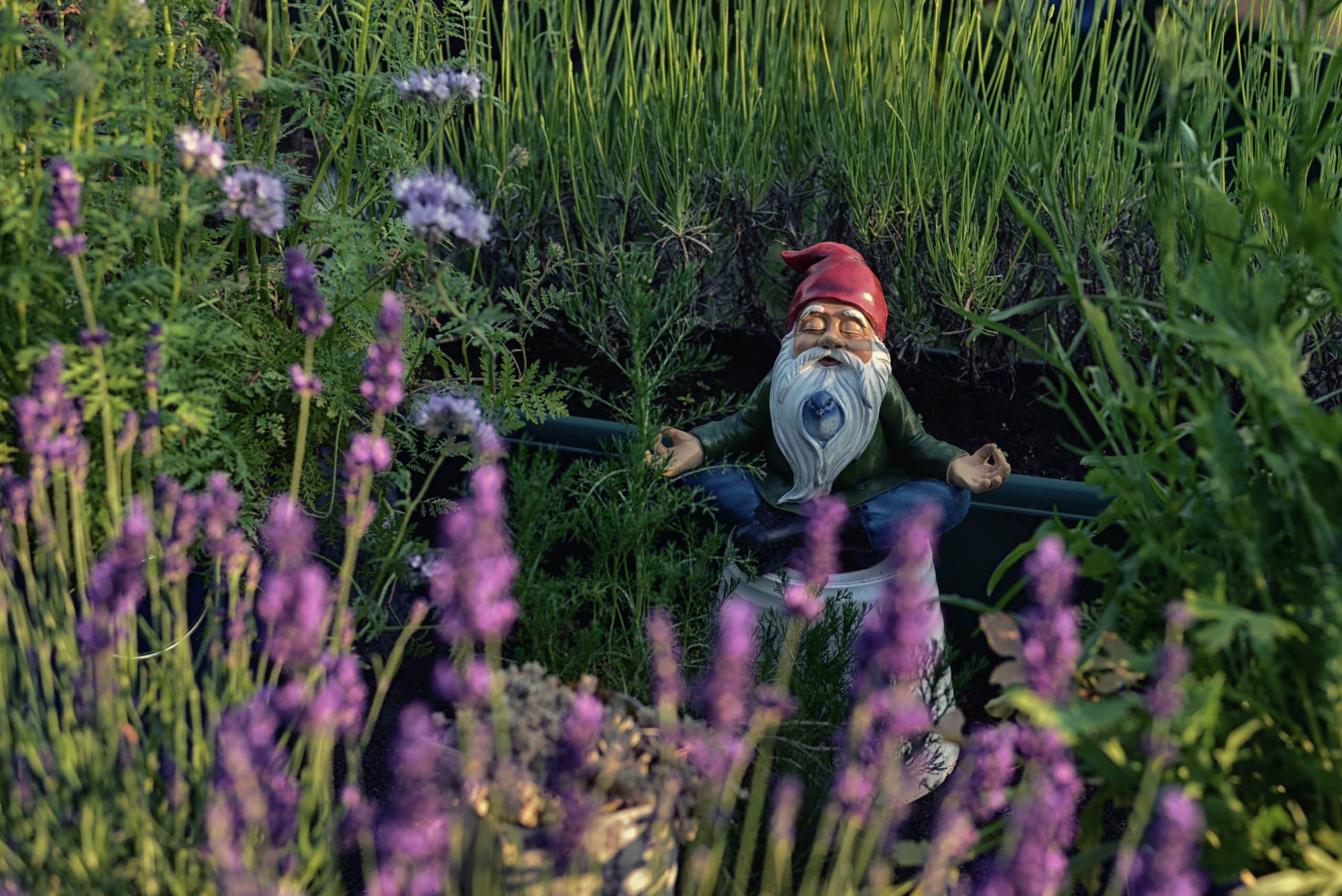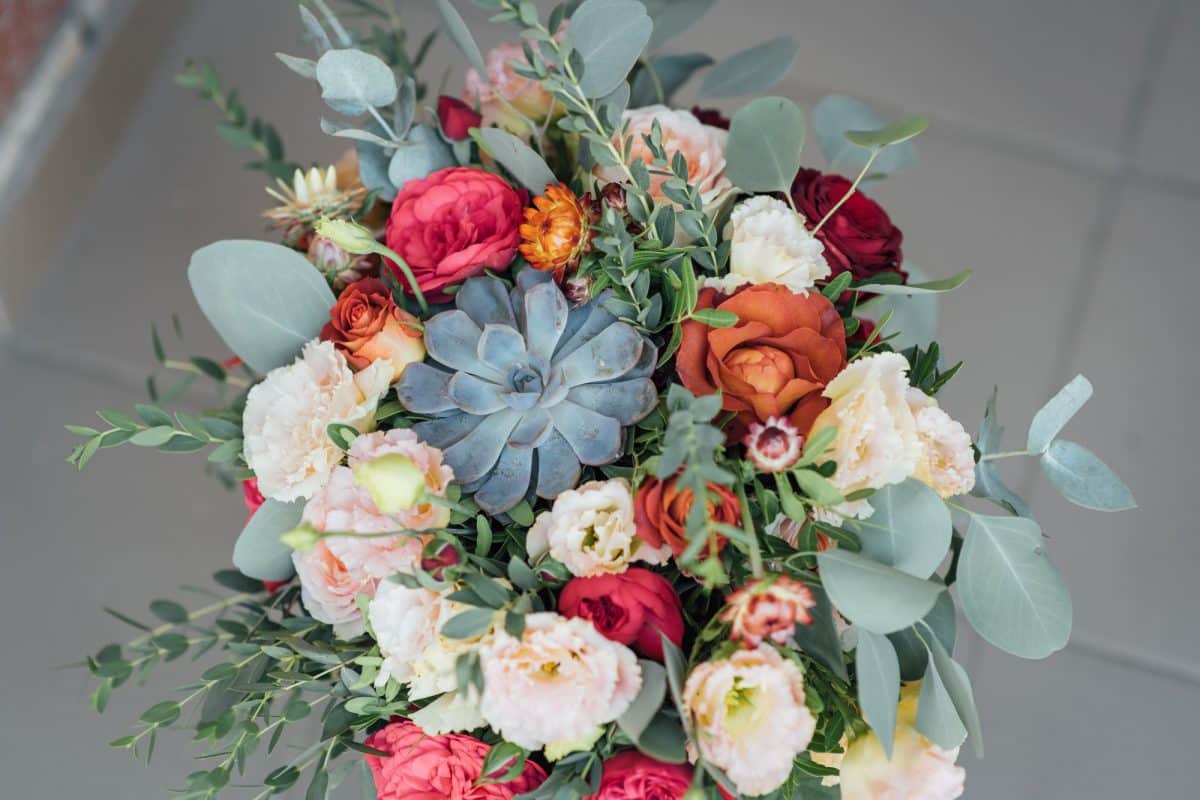10 Tips to Start an Herb Garden
I recently wrote an article on why you should start an herb garden, which I will briefly touch on below.
Now, I want to talk about how to start an herb garden.
While it might seem pretty straightforward, there are a few things to keep in mind so that you can have a better chance of meeting success, and not quitting.
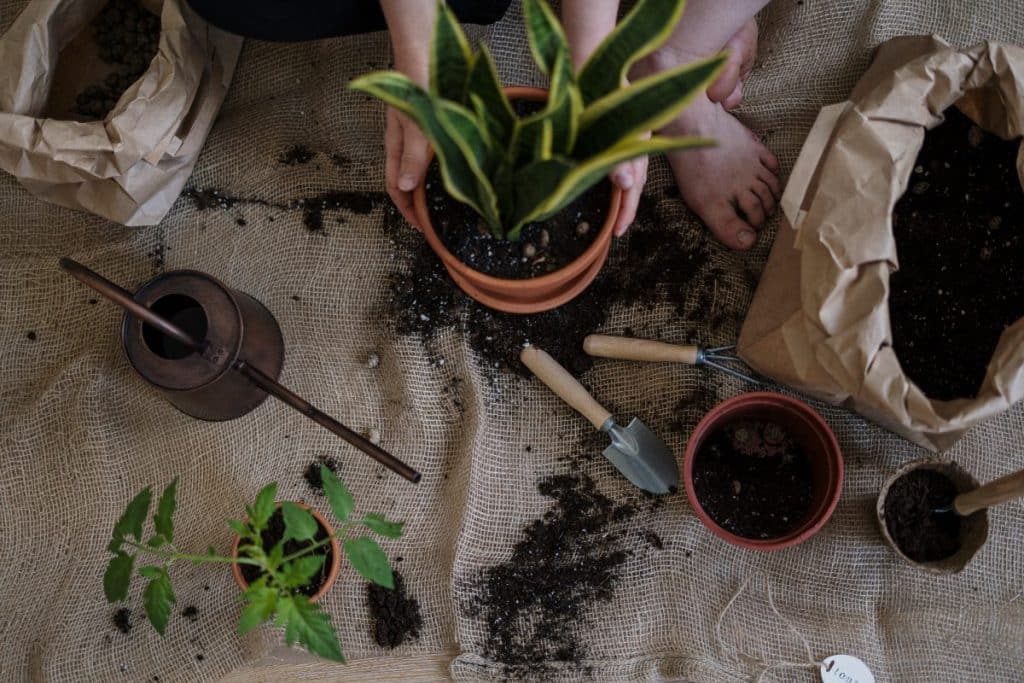
Table of Contents
Why Start an Herb Garden
First, let’s review why it’s a good idea to start an herb garden.
Anyone interested in witchy spiritual stuff, anyone interested in natural healing, anyone interested in connecting to nature, anyone interested in expanding their cooking skills, and anyone interested in the mind body spirit connection, should start an herb garden.
Abundant studies have shown the connection between total wellness and longevity and growing your own plans and food.
And it’s not just our physical health, but also our mental health that are improved when we connect to plant in this way.
There are also ample benefits to understanding the way the herbs interact with our bodies, and we’re more likely to grasp this understanding if we grow the herbs ourselves and start figuring out what to do with them once they’ve grown.
There really is no downside to starting your own herb garden, even if it’s just to learn a new skill or practice a new art form. An herb garden can be both.
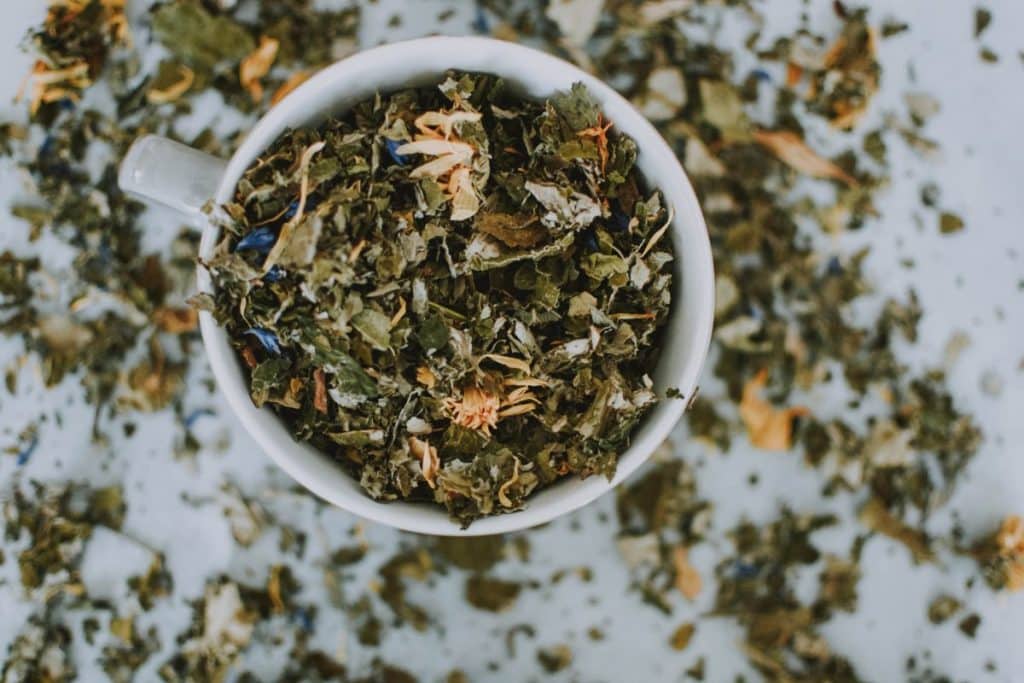
10 Tips to Start an Herb Garden
I suspect the reason more people don’t start their own herb gardens is that they don’t know where to start.
If you’ve never worked with plans before, much less with food, it can feel intimidating and overwhelming.
But the trick to starting something is just that – start.
To that end, here are 10 tips to start an herb garden.
Choose Your Space
The first step to start an herb garden is to choose your space.
If you don’t have any outdoor space, maybe, for example you have an apartment with no patio or balcony, then you’ll have to choose an indoor space.
If you have the opportunity to grow herbs outside, that might be an option to, weather permitting.
If you are feeling particularly bold and brave, you can do both.
Here are some options for both:
Inside
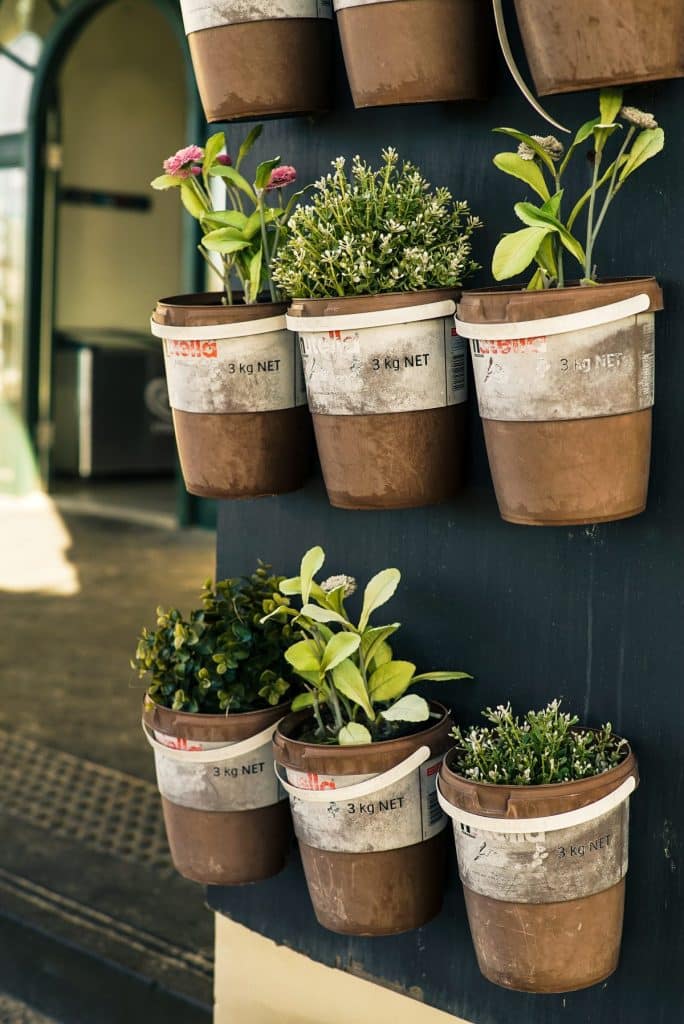
Whether you are growing indoors, because of space limitations, or just because of preference, there are a few things to keep in mind.
In general herbs, do well in slightly humid, warm spaces with direct sun. The kitchen is often a favorite location for a small herb garden, particularly on your kitchen windowsill.
Growing herbs indoors will keep your plants small, limited to the space of your pots or planters, and can also offer myriad decorative benefits.
You can grow herbs indoors all year round, but you may need some artificial light or “grow lights” to help them really thrive.
Be sure to plant your herbs in containers with plenty of drainage, holes or slats in a soil list mixture that allows for good draining.
Keep them close to each other so that they can create their own humidity and air circulation. You also might want to consider investing in a humidifier or fan for the area to help air circulation and humidity.
Outside
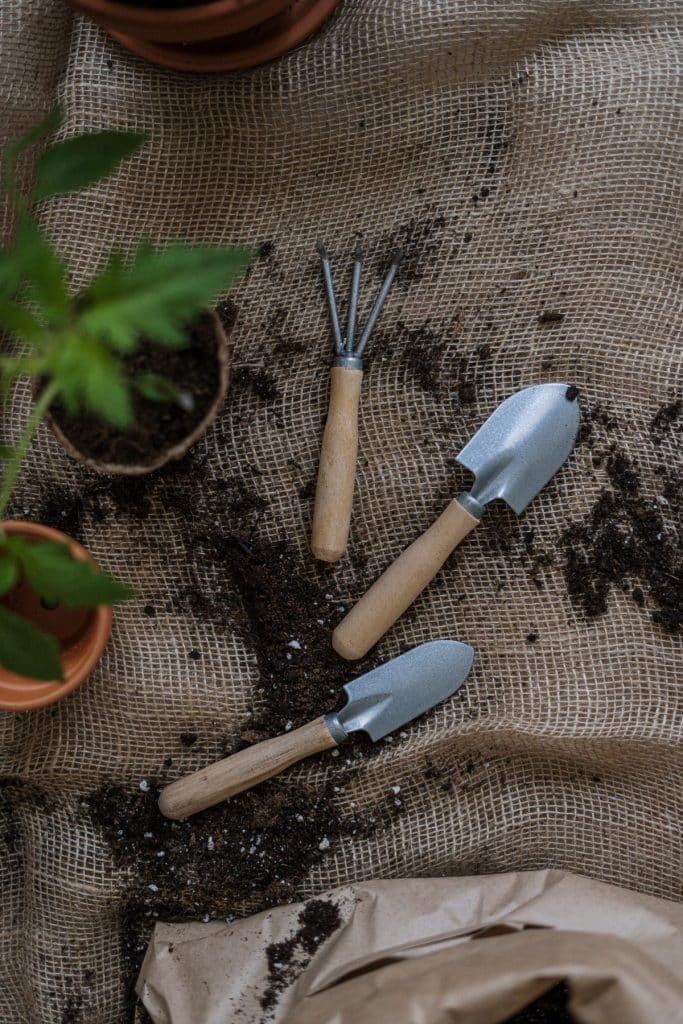
If you want to grow your herbs, outdoors, one of the huge benefits is that you can expand the size and shape of your herb garden.
You can plant in larger pots, or directly in your soil, and hope for large bushes of rosemary and basil, for example.
Another nice thing about growing herbs outdoors is that you can put them pretty much anywhere on your land. Herbs are not particularly picky about their soil type and they may even benefit your other plants.
As a bonus, many different kinds of herbs can ward off bugs.
I plant varieties of rosemary, lavender, and mint all over my land to ward off ticks, mosquitoes, and flies.
Remindful of the sunlight exposure outside; some herbs need more sunlight than others, but very few do well in super hot, full sun all day long.
Do you want to offer a little bit of shade at least.
Just like indoors, you’re going to want soil that has plenty of drainage, and be sure to plant your herbs outside during the spring time.
If you have particularly harsh winters with freezing soil, be sure to mulch at least 4 inches deep at the base of your herb to increase the soil temperature, which will help your herbs survive.
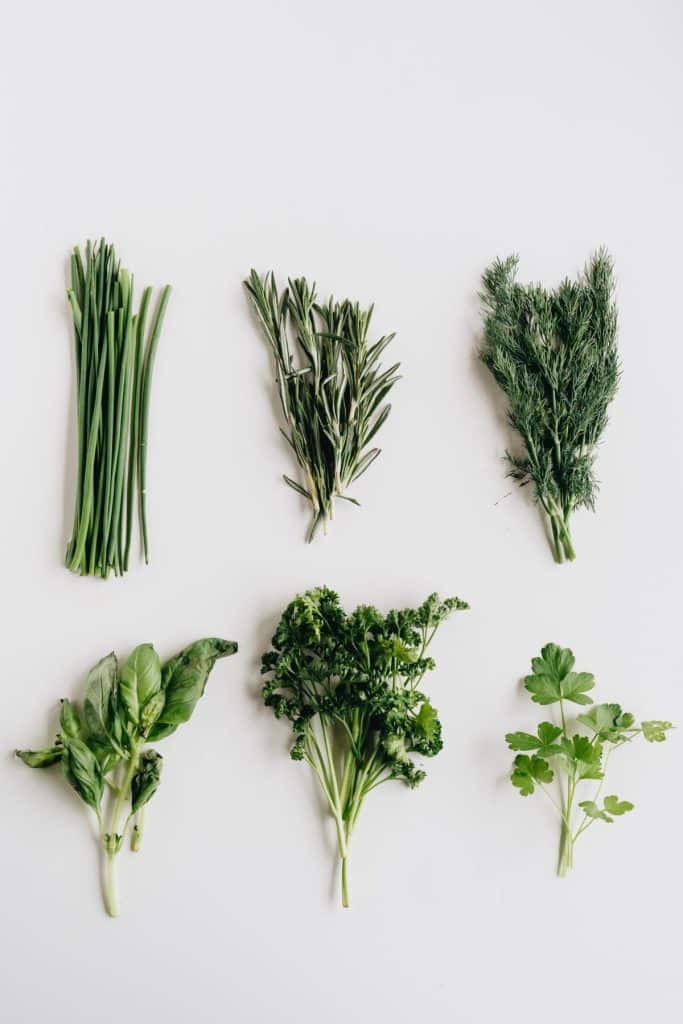
Choose Your Herbs
Once you’ve decided where you want to plant your herbs, you also need to decide which herbs plant. Some of this may be determined by your choice of location.
The best herbs to grow indoors include basil, mint, oregano, parsley, rosemary, bay laurel, lemon grass, chives, and thyme.
Herbs that grow very well outdoors include basil, mint, oregano, parsley, rosemary, bay laurel, lemongrass, chives, thyme, coriander or cilantro, fennel, dill, lavender, chives, tarragon, and catnip.
You can see there is a lot of cross over here as some of these herbs are just really easy to plant and grow, like basil and oregano.
Others are specifically better in one location versus another.
Buy Starters not Seeds
I really important points to note when starting an herb garden that you won’t find on a lot of websites is to buy starters, not seeds.
Yes, it is super impressive if you can grow plants from seeds, but the process is more involved, germinating seeds, getting them to sprout, etc.
It is much easier, and there is certainly no shame, to just go to your local garden store, and buy some herb starters.
The plants have already sprouted, now, all you have to do is transplant them, and care for them.
Once you get a really good at herb gardening, sure, invest in some seeds and try your hand at sprouting your own.
But to get yourself started, just go with the starters.
Do Your Homework
While reading this piece is a great beginning to your herb garden journey, also be sure that you do your homework.
Check out other articles on a specific herbs that you want to grow, on the benefits of those herbs, and then any particular ways of caring for those herbs, either indoors or outdoors.
Some herbs need extra sun, some herbs need extra shade, some herbs need extra humidity, and so on.
The better you prepare yourself for your specific herbs, the more likely you are to have success.
Invest in Pots
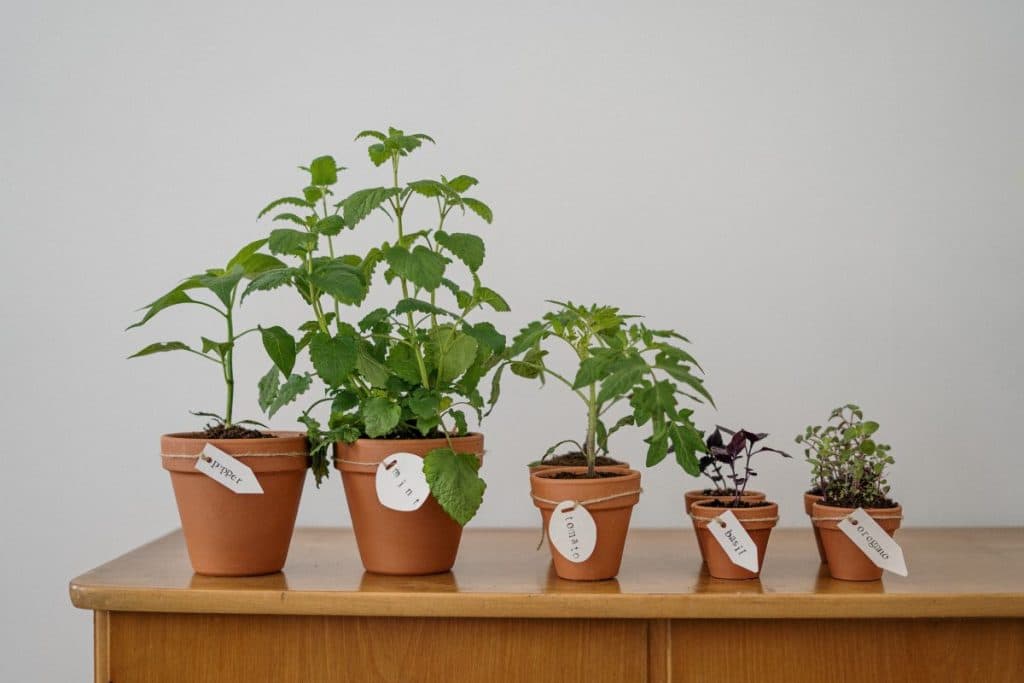
One of the most fun things to do when it comes to an herb garden, aside from picking herbs, is picking out cute pots and planters for your garden.
Particularly if you’re planting indoors, investing in good clay, pots, metal tins, or even creating your own DIY pots or planters, goes along way towards connecting you to your herb garden.
So wander through Pinterest pages and local garden shops and find the aesthetic that goes best with your chosen location.
Then let that aesthetic guide your investment in pots and planters.
Invest in Soil
For indoor herbs, your plants will want well drained soil, so look for a mix that contains peat moss, vermiculite, and perlite. Some mixes also might contain sand.
The goal is to avoid soil that will become hard packed and backed up, storing water and drowning your roots.
Outdoors, choose locations on land that are rockier, for drainage, or closer to other plants, for nutrient exchanges.
Invest in Plant Food
This one is more aimed at indoor herbs as herb gardens outdoors should provide ample nutrients from the elements.
Indoor herbs will need a little boost as they won’t receive the same elemental exchanges locked up behind four walls.
The most common herb garden foods are fish based or seaweed based. You can also use compost or worm castings.
Build a Ritual Around Planting
Once you have gathered all of your supplies, chosen your location, and you’re ready to start, make the planting ritualistic.
Spring is a great time to start an herb garden outdoors, so plan it around Imbolc, on February 1, or around the spring solstice, on March 21 or 22nd, depending on the weather in your area.
Planning around Sabbath days allows you to bring a spiritual aspect into the care and feeding of your herbs.
When you make this process spiritual, you are beginning to channel universal energy, which more closely connects you to nature.
If you are planting an herb garden indoors, you can really do this any time of year, or any season, though it might be more challenging to find herbs outside of the spring cycle.
But if you can find starters at another time of year, I still recommend making this a ritual.
Choose another one of the sabbaths, maybe a solstice, a full moon, or a new moon, depending on your intentions.
Either way, set those intentions, and make a plan for care going forward.
Build a Ritual Around Care
Likewise, build a ritual around that care.
For example, I like to check on my plants once a week, every Saturday, after I clean my house.
I made it a point to check in with my plants, dipping my fingers into the soil, and watering when the soil feels dry.
Depending on how complex your system is, you can make this ritual weekly, or even several times a week.
Studies show that talking to house plants actually helps them grow and thrive, so you can build your own ritual around communicating with your plants as well, perhaps thinking them for their healing medicine.
Use Your Herbs
And finally, use your herbs.
One of the things that will keep you invested in growing your herb garden is the understanding of exactly what does herbs do for you.
Plan, meals, sauces, soups, etc. around your herbs.
Have tea parties with your girlfriends that involve your herbs, make oils and tinctures with your herbs if you wanna get really crazy.
The point is to not just have these herbs sitting around to be pretty decorations. They’re meant to have used in your life.
Allow them to fulfill their purpose, and you will feel like you also are fulfilling yours.
Happy manifesting!

